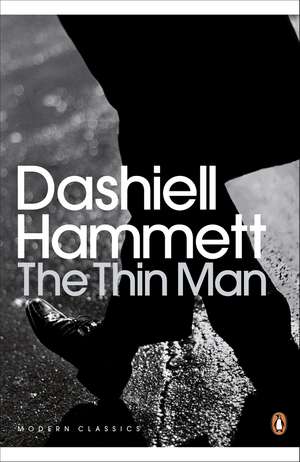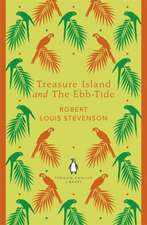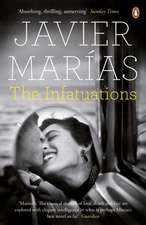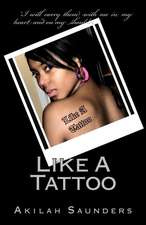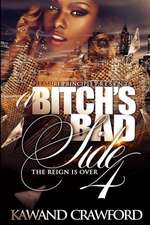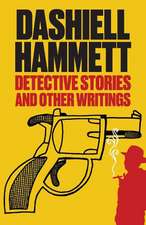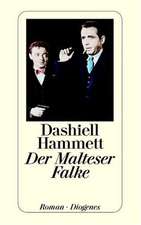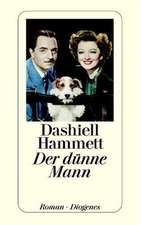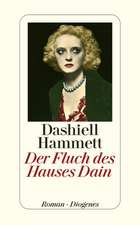Extras
1 I was leaning against the bar in a speakeasy on Fifty-second Street, waiting for Nora to finish her Christmas shopping, when a girl got up from the table where she had been sitting with three other people and came over to me. She was small and blonde, and whether you looked at her face or at her body in powder-blue sports clothes, the result was satisfactory. "Aren't you Nick Charles?" she asked. I said: "Yes." She held out her hand. "I'm Dorothy Wynant. You don't remember me, but you ought to remember my father, Clyde Wynant. You--" "Sure," I said, "and I remember you now, but you were only a kid of eleven or twelve then, weren't you?" "Yes, that was eight years ago. Listen: remember those stories you told me? Were they true?" "Probably not. How is your father?" She laughed. "I was going to ask you. Mamma divorced him, you know, and we never hear from him--except when he gets in the newspapers now and then with some of his carryings on. Don't you ever see him?" My glass was empty. I asked her what she would have to drink, she said Scotch and soda. I ordered two of them and said: "No, I've been living in San Francisco." She said slowly: "I'd like to see him. Mamma would raise hell if she found it out, but I'd like to see him." "Well?" "He's not where we used to live, on Riverside Drive, and he's not in the phone book or city directory." "Try his lawyer," I suggested. Her face brightened. "Who is he?" "It used to be a fellow named Mac-something-or-other--Macaulay, that's it, Herbert Macaulay. He was in the Singer Building." "Lend me a nickel," she said, and went out to the telephone. She came back smiling. "I found him. He's just round the corner on Fifth Avenue." "Your father?" "The lawyer. He says my father's out of town. I'm going round to see him." She raised her glass to me. "Family reunions. Look, why don't--" Asta jumped up and punched me in the belly with her front feet. Nora, at the end of the leash, said: "She's had a swell afternoon--knocked over a table of toys at Lord & Taylor's, scared a fat woman silly by licking her leg in Saks's, and's been patted by three policemen." I made introductions. "My wife, Dorothy Wynant. Her father was once a client of mine, when she was only so high. A good guy, but screwy." "I was fascinated by him," Dorothy said, meaning me, "a real live detective, and used to follow him around making him tell me about his experiences. He told me awful lies, but I believed every word." I said: "You look tired, Nora." "I am. Let's sit down." Dorothy Wynant said she had to go back to her table. She shook hands with Nora; we must drop in for cocktails, they were living at Courtland, her mother's name was Jorgensen now. We would be glad to and she must come see us some time, we were at the Normandie and would be in New York for another week or two. Dorothy patted the dog's head and left us. We found a table. Nora said: "She's pretty." "If you like them like that." She grinned at me. "You got types?" "Only you, darling--lanky brunettes with wicked jaws." "And how about the red-head you wandered off with at the Quinns' last night?" "That's silly," I said. "She just wanted to show me some French etchings." 2 The next day Herbert Macaulay telephoned me. "Hello, I didn't know you were back in town till Dorothy Wynant told me. How about lunch?" "What time is it?" "Half past eleven. Did I wake you up?" "Yes," I said, "but that's all right. Suppose you come up here for lunch: I've got a hangover and don't feel like running around much. . . . O.K., say one o'clock." I had a drink with Nora, who was going out to have her hair washed, then another after a shower, and was feeling better by the time the telephone rang again. A female voice asked: "Is Mr. Macaulay there?" "Not yet." "Sorry to trouble you, but would you mind asking him to call his office as soon as he gets there? It's important." I promised to do that. Macaulay arrived about ten minutes later. He was a big curly-haired, rosy-cheeked, rather good-looking chap of about my age--forty-one--though he looked younger. He was supposed to be a pretty good lawyer. I had worked on several jobs for him when I was living in New York and we had always got along nicely. Now we shook hands and patted each other's backs, and he asked me how the world was treating me, and I said, "Fine," and asked him and he said, "Fine," and I told him to call his office. He came away from the telephone frowning. "Wynant's back in town," he said, "and wants me to meet him." I turned around with the drinks I had poured. "Well, the lunch can--" "Let him wait," he said, and took one of the glasses from me. "Still as screwy as ever?" "That's no joke," Macaulay said solemnly. "You heard they had him in a sanatorium for nearly a year back in '29?" "No." He nodded. He sat down, put his glass on a table beside his chair, and leaned towards me a little. "What's Mimi up to, Charles?" "Mimi? Oh, the wife--the ex-wife. I don't know. Does she have to be up to something?" "She usually is," he said dryly, and then very slowly, "and I thought you'd know." So that was it. I said: "Listen, Mac, I haven't been a detective for six years, since 1927." He stared at me. "On the level," I assured him, "a year after I got married, my wife's father died and left her a lumber mill and a narrow-gauge railroad and some other things and I quit the Agency to look after them. Anyway I wouldn't be working for Mimi Wynant, or Jorgensen, or whatever her name is--she never liked me and I never liked her." "Oh, I didn't think you--" Macaulay broke off with a vague gesture and picked up his glass. When he took it away from his mouth, he said: "I was just wondering. Here Mimi phones me three days ago--Tuesday--trying to find Wynant; then yesterday Dorothy phones, saying you told her to, and comes around, and--I thought you were still sleuthing, so I was wondering what it was all about." "Didn't they tell you?" "Sure--they wanted to see him for old times' sake. That means a lot." "You lawyers are a suspicious crew," I said. "Maybe they did--that and money. But what's the fuss about? Is he in hiding?" Macaulay shrugged. "You know as much about it as I do. I haven't seen him since October." He drank again. "How long are you going to be in town?" "Till after New Year's," I told him and went to the telephone to ask room service for menus. 3 Nora and I went to the opening of Honeymoon at the Little Theatre that night and then to a party given by some people named Freeman or Fielding or something. I felt pretty low when she called me the next morning. She gave me a newspaper and a cup of coffee and said: "Read that." I patiently read a paragraph or two, then put the paper down and took a sip of coffee. "Fun's fun," I said, "but right now I'd swap you all the interviews with Mayor-elect O'Brien ever printed--and throw in the Indian picture--for a slug of whis--" "Not that, stupid." She put a finger on the paper. "That." INVENTOR'S SECRETARY MURDERED IN APARTMENT Julia Wolf's bullet-riddled body found; Police seek her employer, Clyde Wynant The bullet-riddled body of Julia Wolf, thirty-two-year old confidential secretary to Clyde Miller Wynant, well-known inventor, was discovered late yesterday afternoon in the dead woman's apartment at 411 East Fifty-fourth St. by Mrs. Christian Jorgensen, divorced wife of the inventor, who had gone there in an attempt to learn her former husband's present address. Mrs. Jorgensen, who returned Monday after a six-year stay in Europe, told police that she heard feeble groans when she rang the murdered woman's door-bell, whereupon she notified an elevator boy, Mervin Holly, who called Walter Meany, apartment-house superintendent. Miss Wolf was lying on the bedroom floor with four .32-caliber bullet-wounds in her chest when they entered the apartment, and died without having recovered consciousness before police and medical aid arrived. Herbert Macaulay, Wynant's attorney, told the police that he had not seen the inventor since October. He stated that Wynant called him on the telephone yesterday and made an appointment, but failed to keep it; and disclaimed any knowledge of his client's whereabouts. Miss Wolf, Macaulay stated, had been in the inventor's employ for the past eight years. The attorney said he knew nothing about the dead woman's family or private affairs and could throw no light on her murder. The bullet-wounds could not have been self-inflicted, according to . . . The rest of it was the usual police department handout. "Do you suppose he killed her?" Nora asked when I put the paper down again. "Wynant? I wouldn't be surprised. He's batty as hell." "Did you know her?" "Yes. How about a drop of something to cut the phlegm?" "What was she like?" "Not bad," I said. "She wasn't bad-looking and she had a lot of sense and a lot of nerve--and it took both to live with that guy." "She lived with him?" "Yes. I want a drink, please. That is, it was like that when I knew them." "Why don't you have some breakfast first? Was she in love with him or was it just business?" "I don't know. It's too early for breakfast." When Nora opened the door to go out, the dog came in and put her front feet on the bed, her face in my face. I rubbed her head and tried to remember something Wynant had once said to me, something about women and dogs. It was not the woman-spaniel-walnut-tree line. I could not remember what it was, but there seemed to be some point in trying to remember. Nora returned with two drinks and another question: "What's he like?" "Tall--over six feet--and one of the thinnest men I've ever seen. He must be about fifty now, and his hair was almost white when I knew him. Usually needs a haircut, ragged brindle mustache, bites his fingernails." I pushed the dog away to reach for my drink. "Sounds lovely. What were you doing with him?" "A fellow who'd worked for him accused him of stealing some kind of invention from him. Rosewater was his name. He tried to shake Wynant down by threatening to shoot him, bomb his house, kidnap his children, cut his wife's throat--I don't know what all--if he didn't come across. We never caught him--must've scared him off. Anyway, the threats stopped and nothing happened." Nora stopped drinking to ask: "Did Wynant really steal it?" "Tch, tch, tch," I said. "This is Christmas Eve: try to think good of your fellow man." 4 That afternoon I took Asta for a walk, explained to two people that she was a Schnauzer and not a cross between a Scottie and an Irish terrier, stopped at Jim's for a couple of drinks, ran into Larry Crowley, and brought him back to the Normandie with me. Nora was pouring cocktails for the Quinns, Margot Innes, a man whose name I did not catch, and Dorothy Wynant. Dorothy said she wanted to talk to me, so we carried our cocktails into the bedroom. She came to the point right away. "Do you think my father killed her, Nick?" "No," I said. "Why should I?" "Well, the police have-- Listen, she was his mistress, wasn't she?" I nodded. "When I knew them." She stared at her glass while saying, "He's my father. I never liked him. I never liked Mamma." She looked up at me. "I don't like Gilbert." Gilbert was her brother. "Don't let that worry you. Lots of people don't like their relatives." "Do you like them?" "My relatives?" "Mine." She scowled at me. "And stop talking to me as if I was still twelve." "It's not that," I explained. "I'm getting tight." "Well, do you?" I shook my head. "You were all right, just a spoiled kid. I could get along without the rest of them." "What's the matter with us?" she asked, not argumentatively, but as if she really wanted to know. "Different things. Your--" Harrison Quinn opened the door and said: "Come on over and play some Ping-Pong, Nick." "In a little while." "Bring Beautiful along." He leered at Dorothy and went away. She said: "I don't suppose you know Jorgensen." "I know a Nels Jorgensen." "Some people have all the luck. This one's named Christian. He's a honey. That's Mamma--divorces a lunatic and marries a gigolo." Her eyes became wet. She caught her breath in a sob and asked: "What am I going to do, Nick?" Her voice was a frightened child's. I put an arm around her and made what I hoped were comforting sounds. She cried on my lapel. The telephone beside the bed began to ring. In the next room "Rise and Shine" was coming through the radio. My glass was empty. I said: "Walk out on them." She sobbed again. "You can't walk out on yourself." "Maybe I don't know what you're talking about." "Please don't tease me," she said humbly. Nora, coming in to answer the telephone, looked questioningly at me. I made a face at her over the girl's head. When Nora said "Hello" into the telephone, the girl stepped quickly back away from me and blushed. "I--I'm sorry," she stammered, "I didn't--" Nora smiled sympathetically at her. I said: "Don't be a dope." The girl found her handkerchief and dabbed at her eyes with it. Nora spoke into the telephone. "Yes . . . I'll see if he's in. Who's calling, please?" She put a hand over the mouthpiece and addressed me: "It's a man named Norman. Do you want to talk to him?" I said I didn't know and took the telephone. "Hello." A somewhat harsh voice said: "Mr. Charles? . . . Mr. Charles, I understand that you were formerly connected with the Trans-American Detective Agency." "Who is this?" I asked. "My name is Albert Norman, Mr. Charles, which probably means nothing to you, but I would like to lay a proposition before you. I am sure you will--" "What kind of a proposition?" "I can't discuss it over the phone, Mr. Charles, but if you will give me half an hour of your time, I can promise--""Sorry," I said. "I'm pretty busy and--""But, Mr. Charles, this is--" Then there was a loud noise: it could have been a shot or something falling or anything else that would make a loud noise. I said, "Hello," a couple of times, got no answer, and hung up.
 Preț: 41.41 lei
Preț: 41.41 lei Preț: 82.90 lei
Preț: 82.90 lei Preț: 80.98 lei
Preț: 80.98 lei Preț: 48.87 lei
Preț: 48.87 lei Preț: 52.07 lei
Preț: 52.07 lei Preț: 59.39 lei
Preț: 59.39 lei Preț: 46.05 lei
Preț: 46.05 lei Preț: 52.49 lei
Preț: 52.49 lei Preț: 69.06 lei
Preț: 69.06 lei Preț: 58.66 lei
Preț: 58.66 lei Preț: 51.67 lei
Preț: 51.67 lei Preț: 81.84 lei
Preț: 81.84 lei Preț: 46.25 lei
Preț: 46.25 lei Preț: 97.20 lei
Preț: 97.20 lei Preț: 52.33 lei
Preț: 52.33 lei Preț: 48.90 lei
Preț: 48.90 lei Preț: 53.55 lei
Preț: 53.55 lei Preț: 51.39 lei
Preț: 51.39 lei Preț: 63.28 lei
Preț: 63.28 lei Preț: 53.93 lei
Preț: 53.93 lei Preț: 51.00 lei
Preț: 51.00 lei Preț: 49.40 lei
Preț: 49.40 lei Preț: 55.26 lei
Preț: 55.26 lei Preț: 48.30 lei
Preț: 48.30 lei Preț: 52.10 lei
Preț: 52.10 lei Preț: 81.61 lei
Preț: 81.61 lei Preț: 68.49 lei
Preț: 68.49 lei Preț: 46.25 lei
Preț: 46.25 lei Preț: 46.02 lei
Preț: 46.02 lei Preț: 42.26 lei
Preț: 42.26 lei Preț: 51.66 lei
Preț: 51.66 lei Preț: 48.45 lei
Preț: 48.45 lei Preț: 42.69 lei
Preț: 42.69 lei Preț: 54.63 lei
Preț: 54.63 lei Preț: 46.31 lei
Preț: 46.31 lei Preț: 46.31 lei
Preț: 46.31 lei Preț: 53.59 lei
Preț: 53.59 lei Preț: 53.11 lei
Preț: 53.11 lei Preț: 95.04 lei
Preț: 95.04 lei Preț: 79.93 lei
Preț: 79.93 lei Preț: 46.02 lei
Preț: 46.02 lei Preț: 68.94 lei
Preț: 68.94 lei Preț: 81.35 lei
Preț: 81.35 lei Preț: 51.60 lei
Preț: 51.60 lei Preț: 51.38 lei
Preț: 51.38 lei Preț: 53.36 lei
Preț: 53.36 lei Preț: 50.73 lei
Preț: 50.73 lei Preț: 48.46 lei
Preț: 48.46 lei Preț: 53.37 lei
Preț: 53.37 lei Preț: 52.33 lei
Preț: 52.33 lei